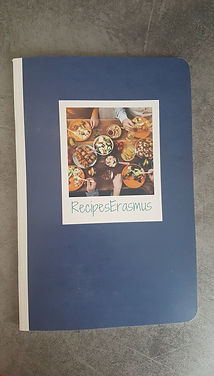
Dunkerke Short Time Exchange - May 2019




French Short Time Exchange Activities. - Results.
Like in previous STE meetings, some activities were changed or replaced to avoid repetition and to make a more coherent programme. The cooking demonstration was cancelled because it would have been too costly and impossible to accommodate such a large group. Also, previous meetings had shown that students really enjoyed preparing food. Several activities were added to enrich the students’ experience of the various workshops in smaller groups, so many activities were scheduled parallel to each other. As a result, there was more effective student activity.
1. Fish, from Fishing to the Plate
This activity was organised by the local harbour museum. With Dunkerque being located by the sea, fishing is one of the main local industries. Students learned about the nutritional value of fish, different ways of fishing, depending on the kind of fish, and the processes involved between fishing and serving fish on the plate. Students specially discussed the controversial issue of fishing by electric shock.
Obj. 3, 8, 9, 12
2. New tendencies: healthy tendencies? – Vegan Workshop
Students delivered their presentations on vegetarian and vegan diets in small groups and discussed the issues. They also took part in a vegan cooking workshop with a specialist vegan chef where they learned some vegan recipes and had some practical experience at producing vegan food.
Obj. 1, 2, 4, 5, 6, 8, 12
3. Food Games
Students participated in a variety of games around the topic of food. They had to decide on the healthiest breakfast and lunch options, the snack with the lowest possible calories, learn about the different qualities and of a variety of foods and reflect on their own eating habits.
Obj. 1, 2, 6, 12
4. Olympic Games
To raise the students’ awareness of the importance of physical exercise, they took part in a variety of sports activities as part of a team competition.
Obj. 1, 2, 3
5. Let´s cook!
A cooking workshop was organised, lead by a chef of the local vocational college in the vicinity of the school, who shared his experience, and especially his technical know-how, with the students. The idea was to produce a healthy and tasty meal. Here, students had hands on experience at cooking following a recipe. They were supported by students from the vocational college.This also gave the students a taste of a possible career path in the catering industry.
Obj. 4, 6, 10, 12
6. Rowing Workshop
The rowing workshop offered another opportunity for students to understand the link between physical exercise and physical well-being as it showed them how much exercise was needed to work off calories acquired by eating different kinds of food. Posters with information on the cardiovascular system and energy production by different organs were designed to support their understanding.
Obj. 1, 2, 3, 12
7. Adventure Games
Students participated in a range of adventure games which provided teambuilding challenges.
Obj. 2, 3, 12
8. Conference with a Nutritionist
The workshop with the nutritionist focussed once more on the importance of a balanced healthy diet. Students gained a deeper understanding of the food pyramid.
Obj. 1, 2, 3, 6, 12
9. Picnic on the Beach
In this activities students were taught to look for edible plants in their natural surroundings. They looked for edible plants in the dunes and also learned about medicinal qualities of certain plants. This activity encouraged them to respect nature.
Obj. 2, 7, 12
10. Cookery book.
A cookery book was presented at the final evening of the exchange meeting. It contains recepies which were studied, tried out and collected over the course of the project and thus provides a great memory for the students.
Obj. 4, 5, 12
11. Final Exhibition
In this workshop students prepared posters with photographs and information about our project work to give an overview of the main experiences and achievements.
Obj. 12
Objectives:
-
To understand the problems related to false nutrition and a sedentary lifestyle
-
To raise awareness of the importance of a healthy lifestyle
-
To understand the close links between healthy and balanced nutrition and sports to increase the quality of life
-
To research and experiment with different types of cooking
-
To collate a range of healthy, and culturally as well as nutritionally diverse recipes
-
To compare and evaluate the students‘ own eating habits and the partner schools‘ policies on school food and sustainability
-
To raise awareness for sustainability and the need to reduce wastage
-
To raise awareness of the value of sustainable regional, organic and Fairtrade goods
-
To understand the connection between mass production and consumption and the resulting difficulties for the regional, organic and Fairtrade market
-
To share good practice in career education, improve the school curriculum and to learn about career options in food, health and sports
-
To encourage entrepreneurship
-
To develop linguistic, digital and social competences



